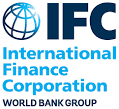La CSU2030 se réjouit d'accueillir plusieurs nouveaux membres...
12 octobre 2021
By Charles Dalton, Subir Basak, and Zhendong Song, IFC Industry Specialists, with the support of William Harris Tavel, IFC Industry Specialist Analyst

How we deliver health care needs to adapt urgently to keep pace with the fast-changing health care landscape. While COVID-19 has brought unique challenges to health systems, the underlying trends - aging populations more prone to noncommunicable diseases requiring long-term care and growing middle classes demanding higher quality health care - will last long after the pandemic subsides. As new technologies such as digital as well as technology platforms for vaccines and biologicals, innovative business models, and improved data analytics and purchasing arrangements empower providers to make the necessary evolutions in care delivery, a chronic shortage of health care professionals hampers efforts at system strengthening. Both bilateral and multilateral development financing institutions see a need to encourage more private sector investment and collaboration to address the challenges above. UHC will need an “all-hands-on-deck” approach with both public and private sectors playing to their respective strengths and fulfilling their complementary roles. To lead the way, the World Bank’s private sector arm (IFC) has launched four key initiatives that respond to short-term needs while also contributing to long-term system strengthening, in sync with the Bank’s engagement with governments to upgrade policies, enhance regulatory systems, and mobilize sustainable health financing.
1. A Global Health Funding Platform
In 2020, IFC committed US$2.0 billion to increase the resilience of health care systems worldwide. The pandemic made worse the already existing supply gaps and quality problems, and the Global Health Platform is being used to expand the manufacture and delivery of health care products for developing countries. The program has a special focus on vaccines, personal protective equipment, and raw materials used to make pharmaceuticals.
2. Improving Access to Medical Technology
To increase access to quality medical technology, especially in lower-resource settings, IFC in 2021 launched the US$300 million African Medical Equipment Facility (AMEF), a financing mechanism that improves access to, and affordability of, quality medical equipment for small and medium-sized enterprises. AMEF comprises a risk-sharing component forged between participating banks, manufacturers and IFC, and an advisory services component that educates participating banks and health care organizations on how best to procure medical equipment. Nine countries in East and West Africa have joined AMEF so far, along with leading global manufacturers such as GE and Philips (www.ifc.org/amef), with plans to further extend the facility’s reach.
3. Meeting Core Pharmaceutical Needs
The pandemic has underscored an urgent need for a more decentralized pharmaceutical manufacturing base, one with hubs across emerging markets. In addition to supporting this through our investments, IFC is working with manufacturers to raise production quality standards in emerging markets by aligning with good manufacturing practices, a global quality control system for pharmaceutical manufacturers. This effort involves new capital expenditures, replacing old facilities with newer ones, investing in process development and research and development to develop and expand product portfolios, and leveraging mergers and acquisitions and licensing opportunities to acquire portfolios.
For example, IFC led a global syndication with several development finance institutions to deploy a US$713 million package to South Africa-based pharmaceutical manufacturer Aspen Pharmacare. Aspen has partnered with Johnson & Johnson to compound, finish, fill and package the Janssen (a Johnson & Johnson company) COVID-19 vaccine at its sterile facility in South Africa. Aspen has recently built a fully certified sterile injectables facility at its existing site at Gqeberha (formally known as Port Elizabeth), South Africa. With this new facility, Aspen was able to offer Johnson & Johnson filling, finishing and packaging capacity for its COVID-19 vaccine, with the first batches having already been manufactured. This will help to alleviate the continent’s dire shortage of vaccine supplies. Another region where we are growing our investment footprint is Latin America, with IFC funding the greenfield manufacturing plant of Genomma Lab, Mexico’s largest producer of over-the-counter pharmaceutical and personal care products. This investment creates local capacity to meet the growing demand in Mexico for locally produced, affordably priced, high quality products.
4. Embedding Ethical Principles
In collaboration with the World Bank and with extensive input from health care providers and policy experts, we developed and published in 2019 a set of ten fundamental principles that can be shared across the health care ecosystem to promote good ethical practices. The Ethical Principles in Health Care, or EPiHC, offer ethical guidance on the decisions, transactions, practices, and encounters health care organizations must navigate daily. The idea is to foster a community of like-minded organizations who come together on a voluntary basis to share best practices on how to implement EPiHC and forge partnerships to achieve common goals. The EPiHC community is growing rapidly, with 175 signatories to date, who manage more than 4,000 health care facilities in over 70 countries.
As health care demands in emerging countries continue to grow, IFC believes that the private sector will play an increasing role in supporting the strengthening of health systems. The many challenges and barriers that lie ahead can be overcome by partnering with committed public or private stakeholders working toward a common goal of building sustainable businesses.
Beyond these four key initiatives, the IFC Health and Life Sciences team is continuing to work towards its primary goal of creating more resilient health systems by investing in the private sector, providing unique and specialized advisory services, and by supporting seed-stage initiatives of companies.
This blog post reflects the presentation and subsequent discussion during the PSC meeting in April 2021. Download the presentation here
To find out more, visit the IFC Health homepage
Catégories: Investir plus, investir mieux, Secteur privé
